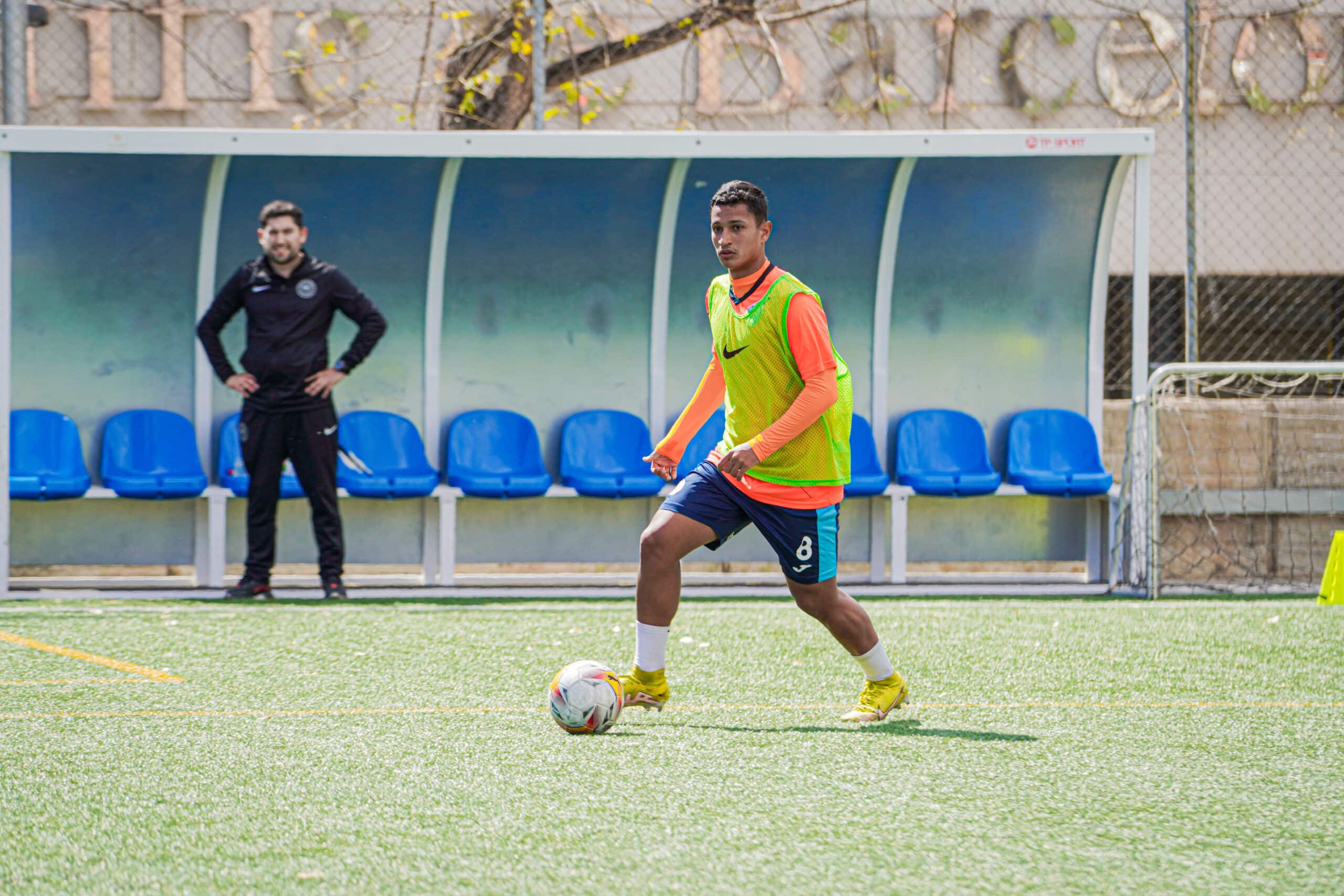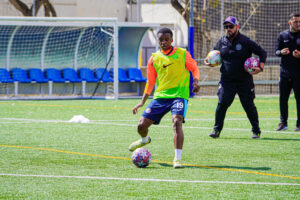In the world of football, every moment is crucial – every movement can define the outcome of a match. In this context, perception plays a vital role. From understanding the available space to assessing the actions of teammates and opponents, perception is the master key that guides quick and accurate decisions on the pitch.
In this week’s article, from the MBP School of Coaches, we will delve deeper into the skill of perception, answering a series of questions. We will also explore how perception affects not only individual decision making, but also team dynamics, and look at how this skill can be improved through training.
What is Perception?
Perception in football encompasses the ability of players to interpret the visual information they receive during the play and use it to make informed decisions. This skill is fundamental to the overall development of football players as it influences their ability to learn and master the basic fundamentals of the game.
An essential component of perception is vision. This is defined as a player’s ability to correctly identify the space, the movements of teammates and opponents, and to select the best option among several possibilities. This ability allows him to anticipate play and make effective tactical decisions under pressure.
How important is perception in sports performance?
In a sport like football, characterised by its complexity and constant decision making, perception is essential to actively pick up information about each game situation and select the most appropriate option. The ability to look beyond the ball and pay attention to the position of players in space is fundamental to success on the pitch.
In many cases, players in the early ludological stages pay too much attention to the trajectory of the ball and too little attention to the position of the players in space. In turn, players in the technification and high-performance period are able to generate more solution possibilities than players in the initiation period in different game situations, using visual resources in a much more effective way.
For example, a player in an egocentric or summative stage will first focus their attention on the incoming ball, then they will focus on controlling it correctly, and will look up (or not) to analyse their immediate surroundings to finally execute the tactical intention.
In contrast, experienced players are more efficient at selecting relevant information during the play, allowing them to make quicker and more accurate decisions. Factors such as experience and gender can influence a player’s perception, but it is crucial to develop perceptual skills from an early stage to improve performance on the field.
What should we train in perception?
Perception training in football involves developing players’ ability to actively pick up information during play and use it to make informed decisions. This requires learning to look beyond the ball, paying attention to the position of players in space and the different options offered by the play.
In the early stages of football development, players should focus on solving problems close to them, learning to observe what is happening around their position. As they evolve, they must expand their perceptual range to better understand the overall game and guide the team’s play effectively.
To improve perception, it is crucial that players practice body orientation and scanning. This will allow them to gather all the necessary information, even when the action takes place outside their direct field of vision.
Conclusion
In short, perception plays a fundamental role in football, influencing players’ decision making on the pitch. Improving perception can make a difference to a team’s performance and the outcome of a match. Therefore, it is crucial to develop perceptual skills from early stages and provide specific training to improve players’ ability to pick up and process information during the game.








